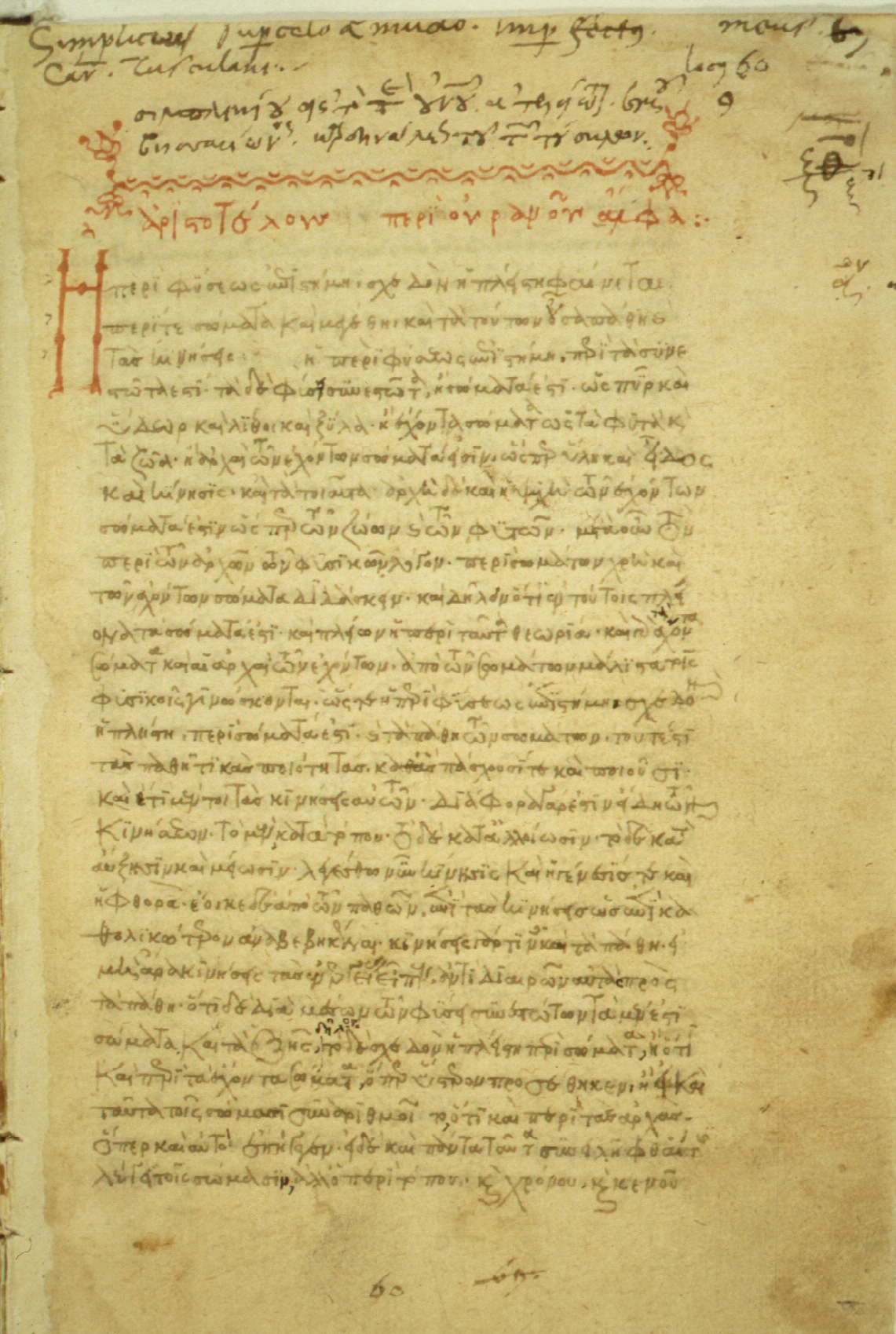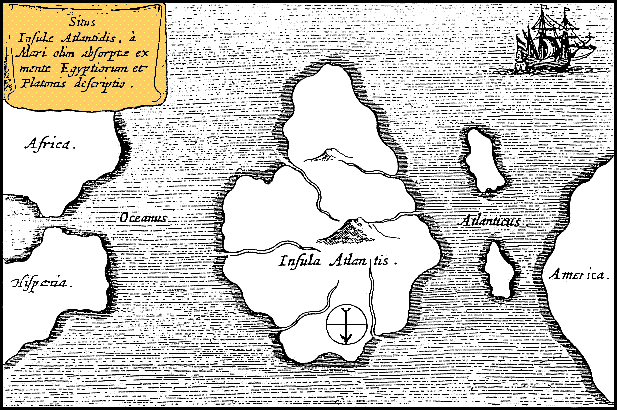|
Eternal Return
Eternal return (german: Ewige Wiederkunft; also known as eternal recurrence) is a concept that the universe and all existence and energy has been recurring, and will continue to recur in a self similar form an infinite number of times across infinite time or space. The concept is found in Indian philosophy and in ancient Egypt and was subsequently taken up by the Pythagoreans and Stoics. With the decline of antiquity and the spread of Christianity, the concept fell into disuse in the Western world, with the exception of 19th century philosopher Friedrich Nietzsche, who resurrected it as a thought experiment. Eternal return relates to the philosophy of predeterminism in that people are predestined to continue repeating the same events over and over again. Classical antiquity In ancient Greece, the concept of eternal return was most prominently associated with Stoicism, the school of philosophy founded by Zeno of Citium, although there are hints that the theory may in fact ha ... [...More Info...] [...Related Items...] OR: [Wikipedia] [Google] [Baidu] |
Universe
The universe is all of space and time and their contents, including planets, stars, galaxies, and all other forms of matter and energy. The Big Bang theory is the prevailing cosmological description of the development of the universe. According to this theory, space and time emerged together ago, and the universe has been expanding ever since the Big Bang. While the spatial size of the entire universe is unknown, it is possible to measure the size of the observable universe, which is approximately 93 billion light-years in diameter at the present day. Some of the earliest cosmological models of the universe were developed by ancient Greek and Indian philosophers and were geocentric, placing Earth at the center. Over the centuries, more precise astronomical observations led Nicolaus Copernicus to develop the heliocentric model with the Sun at the center of the Solar System. In developing the law of universal gravitation, Isaac Newton built upon Copernicus' ... [...More Info...] [...Related Items...] OR: [Wikipedia] [Google] [Baidu] |
Simplicius Of Cilicia
Simplicius of Cilicia (; el, Σιμπλίκιος ὁ Κίλιξ; c. 490 – c. 560 AD) was a disciple of Ammonius Hermiae and Damascius, and was one of the last of the Neoplatonists. He was among the pagan philosophers persecuted by Justinian in the early 6th century, and was forced for a time to seek refuge in the Persian court, before being allowed back into the empire. He wrote extensively on the works of Aristotle. Although his writings are all commentaries on Aristotle and other authors, rather than original compositions, his intelligent and prodigious learning makes him the last great philosopher of pagan antiquity. His works have preserved much information about earlier philosophers which would have otherwise been lost. Life Simplicius was a disciple of Ammonius Hermiae, and Damascius, and was consequently one of the last members of the Neoplatonist school. The school had its headquarters in Athens. It became the centre of the last efforts to maintain Hellenistic reli ... [...More Info...] [...Related Items...] OR: [Wikipedia] [Google] [Baidu] |
Augustine Of Hippo
Augustine of Hippo ( , ; la, Aurelius Augustinus Hipponensis; 13 November 354 – 28 August 430), also known as Saint Augustine, was a theologian and philosopher of Berber origin and the bishop of Hippo Regius in Numidia, Roman North Africa. His writings influenced the development of Western philosophy and Western Christianity, and he is viewed as one of the most important Church Fathers of the Latin Church in the Patristic Period. His many important works include '' The City of God'', '' On Christian Doctrine'', and '' Confessions''. According to his contemporary, Jerome, Augustine "established anew the ancient Faith". In his youth he was drawn to the eclectic Manichaean faith, and later to the Hellenistic philosophy of Neoplatonism. After his conversion to Christianity and baptism in 386, Augustine developed his own approach to philosophy and theology, accommodating a variety of methods and perspectives. Believing the grace of Christ was indispensable to human freed ... [...More Info...] [...Related Items...] OR: [Wikipedia] [Google] [Baidu] |
Free Will
Free will is the capacity of agents to choose between different possible courses of action unimpeded. Free will is closely linked to the concepts of moral responsibility, praise, culpability, sin, and other judgements which apply only to actions that are freely chosen. It is also connected with the concepts of advice, persuasion, deliberation, and prohibition. Traditionally, only actions that are freely willed are seen as deserving credit or blame. Whether free will exists, what it is and the implications of whether it exists or not are some of the longest running debates of philosophy and religion. Some conceive of free will as the right to act outside of external influences or wishes. Some conceive free will to be the capacity to make choices undetermined by past events. Determinism suggests that only one course of events is possible, which is inconsistent with a libertarian model of free will. Ancient Greek philosophy identified this issue, which remains a major fo ... [...More Info...] [...Related Items...] OR: [Wikipedia] [Google] [Baidu] |
Determinism
Determinism is a philosophical view, where all events are determined completely by previously existing causes. Deterministic theories throughout the history of philosophy have developed from diverse and sometimes overlapping motives and considerations. The opposite of determinism is some kind of indeterminism (otherwise called nondeterminism) or randomness. Determinism is often contrasted with free will, although some philosophers claim that the two are compatible.For example, see Determinism is often used to mean ''causal determinism'', which in physics is known as cause-and-effect. This is the concept that events within a given paradigm are bound by causality in such a way that any state of an object or event is completely determined by its prior states. This meaning can be distinguished from other varieties of determinism mentioned below. Debates about determinism often concern the scope of determined systems; some maintain that the entire universe is a single determ ... [...More Info...] [...Related Items...] OR: [Wikipedia] [Google] [Baidu] |
Origen
Origen of Alexandria, ''Ōrigénēs''; Origen's Greek name ''Ōrigénēs'' () probably means "child of Horus" (from , "Horus", and , "born"). ( 185 – 253), also known as Origen Adamantius, was an early Christian scholar, ascetic, and theologian who was born and spent the first half of his career in Alexandria. He was a prolific writer who wrote roughly 2,000 treatises in multiple branches of theology, including textual criticism, biblical exegesis and hermeneutics, homiletics, and spirituality. He was one of the most influential and controversial figures in early Christian theology, apologetics, and asceticism. He has been described as "the greatest genius the early church ever produced". Origen sought martyrdom with his father at a young age but was prevented from turning himself in to the authorities by his mother. When he was eighteen years old, Origen became a catechist at the Catechetical School of Alexandria. He devoted himself to his studies and adopted an as ... [...More Info...] [...Related Items...] OR: [Wikipedia] [Google] [Baidu] |
Alexander Of Aphrodisias
Alexander of Aphrodisias ( grc-gre, Ἀλέξανδρος ὁ Ἀφροδισιεύς, translit=Alexandros ho Aphrodisieus; AD) was a Peripatetic philosopher and the most celebrated of the Ancient Greek commentators on the writings of Aristotle. He was a native of Aphrodisias in Caria, and lived and taught in Athens at the beginning of the 3rd century, where he held a position as head of the Peripatetic school. He wrote many commentaries on the works of Aristotle, extant are those on the ''Prior Analytics'', '' Topics'', ''Meteorology'', '' Sense and Sensibilia'', and ''Metaphysics''. Several original treatises also survive, and include a work ''On Fate'', in which he argues against the Stoic doctrine of necessity; and one ''On the Soul''. His commentaries on Aristotle were considered so useful that he was styled, by way of pre-eminence, "the commentator" (). Life and career Alexander was a native of Aphrodisias in Caria (present-day Turkey)A. Chaniotis, 'Epigraphic evidence fo ... [...More Info...] [...Related Items...] OR: [Wikipedia] [Google] [Baidu] |
Chrysippus
Chrysippus of Soli (; grc-gre, Χρύσιππος ὁ Σολεύς, ; ) was a Greek Stoic philosopher. He was a native of Soli, Cilicia, but moved to Athens as a young man, where he became a pupil of the Stoic philosopher Cleanthes. When Cleanthes died, around 230 BC, Chrysippus became the third head of the Stoic school. A prolific writer, Chrysippus expanded the fundamental doctrines of Cleanthes' mentor Zeno of Citium, the founder and first head of the school, which earned him the title of the Second Founder of Stoicism. Chrysippus excelled in logic, the theory of knowledge, ethics, and physics. He created an original system of propositional logic in order to better understand the workings of the universe and role of humanity within it. He adhered to a deterministic view of fate, but nevertheless sought a role for personal freedom in thought and action. Ethics, he thought, depended on understanding the nature of the universe, and he taught a therapy of extirpating th ... [...More Info...] [...Related Items...] OR: [Wikipedia] [Google] [Baidu] |
Timaeus (dialogue)
''Timaeus'' (; grc-gre, Τίμαιος, Timaios, ) is one of Plato's dialogues, mostly in the form of long monologues given by Critias and Timaeus, written 360 BC. The work puts forward reasoning on the possible nature of the physical world and human beings and is followed by the dialogue '' Critias''. Participants in the dialogue include Socrates, Timaeus, Hermocrates, and Critias. Some scholars believe that it is not the Critias of the Thirty Tyrants who appears in this dialogue, but his grandfather, who is also named Critias. It has been suggested from some traditions ( Diogenes Laertius (VIII 85) from Hermippus of Smyrna (3rd century BC) and Timon of Phlius ( 320 – 235 BC)) that ''Timaeus'' was influenced by a book about Pythagoras, written by Philolaus, although this assertion is generally considered false. Introduction The dialogue takes place the day after Socrates described his ideal state. In Plato's works, such a discussion occurs in the ''Republic''. Socra ... [...More Info...] [...Related Items...] OR: [Wikipedia] [Google] [Baidu] |
Plato
Plato ( ; grc-gre, Πλάτων ; 428/427 or 424/423 – 348/347 BC) was a Greek philosopher born in Athens during the Classical period in Ancient Greece. He founded the Platonist school of thought and the Academy, the first institution of higher learning on the European continent. Along with his teacher, Socrates, and his student, Aristotle, Plato is a central figure in the history of Ancient Greek philosophy and the Western and Middle Eastern philosophies descended from it. He has also shaped religion and spirituality. The so-called neoplatonism of his interpreter Plotinus greatly influenced both Christianity (through Church Fathers such as Augustine) and Islamic philosophy (through e.g. Al-Farabi). In modern times, Friedrich Nietzsche diagnosed Western culture as growing in the shadow of Plato (famously calling Christianity "Platonism for the masses"), while Alfred North Whitehead famously said: "the safest general characterization of the European philosophical tra ... [...More Info...] [...Related Items...] OR: [Wikipedia] [Google] [Baidu] |
Palingenesis
Palingenesis (; also palingenesia) is a concept of rebirth or re-creation, used in various contexts in philosophy, theology, politics, and biology. Its meaning stems from Greek , meaning 'again', and , meaning 'birth'. In biology, it is another word for recapitulationthe largely discredited hypothesis which talks of the phase in the development of an organism in which its form and structure pass through the changes undergone in the evolution of the species. In political theory, it is a central component of Roger Griffin's analysis of fascism as a fundamentally modernist ideology. In theology, the word may refer to reincarnation or to Christian spiritual rebirth. Philosophy and theology The word ''palingenesis'' or rather ''palingenesia'' ( grc, παλιγγενεσία) may be traced back to the Stoics, who used the term for the continual re-creation of the universe. Similarly Philo spoke of Noah and his sons as leaders of a renovation or rebirth of the earth, Plutarch of the ... [...More Info...] [...Related Items...] OR: [Wikipedia] [Google] [Baidu] |





.jpg)




